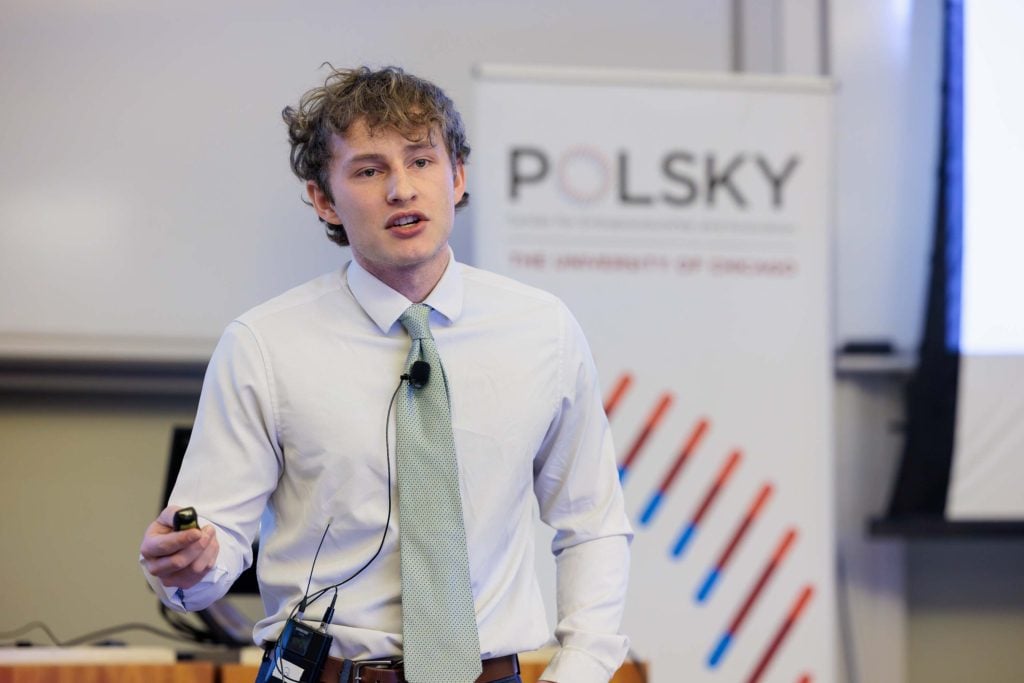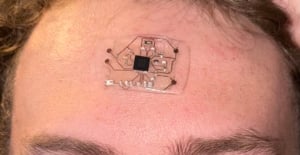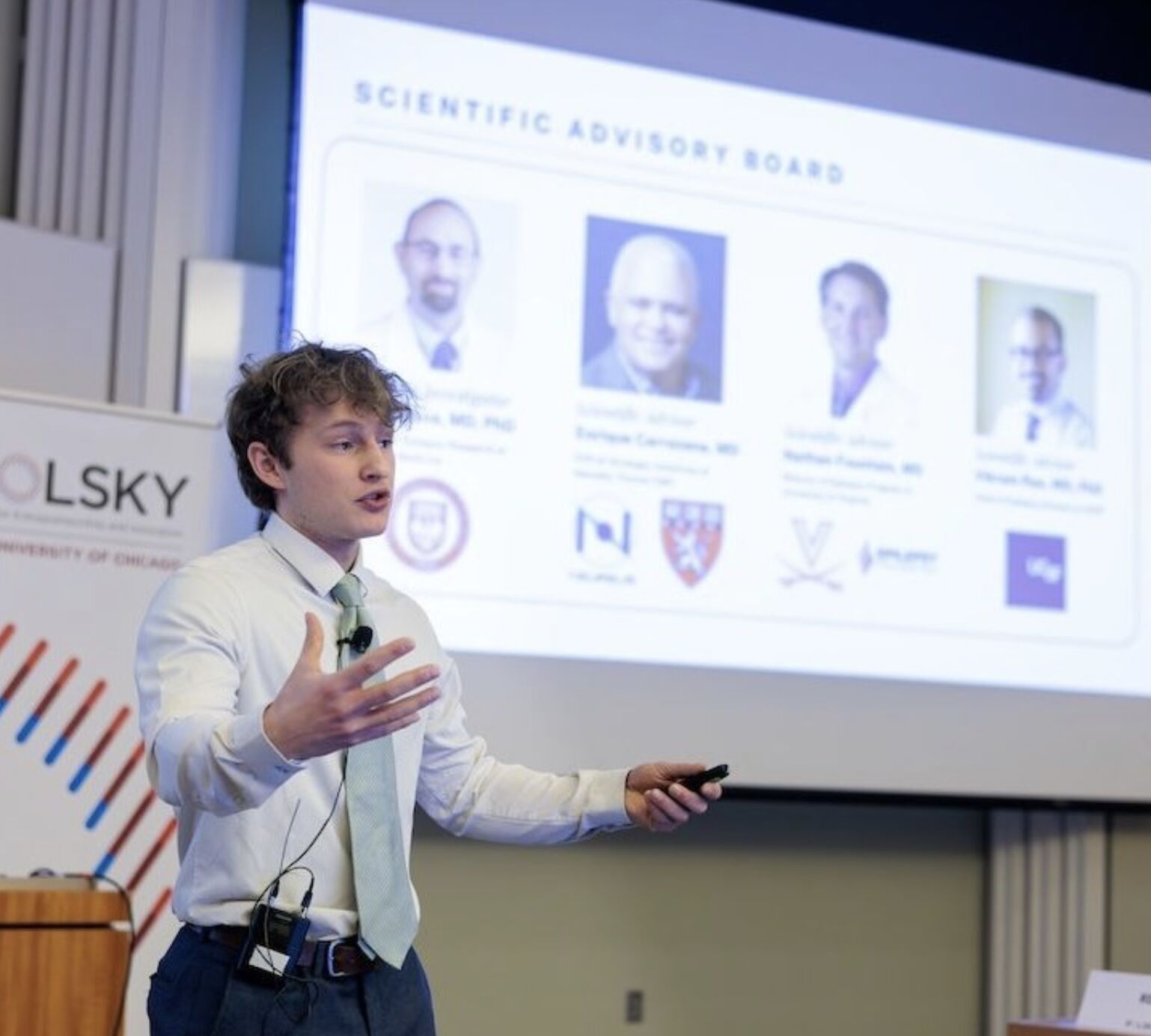How Theta Neurotech is Making Seizure Prediction Possible

Cofounder and CEO of Theta Neurotech Truman Pierson
Every year, thousands of epilepsy patients lose their lives unexpectedly — often with no warning that a seizure is even coming. It’s a terrifying reality for the more than 3 million people in the U.S. living with epilepsy, and one that University of Chicago undergraduate Truman Pierson and Vanderbilt’s Chris Fitz are seeking to change.
It started with a question – if we can track things such as heart rate, sleep quality, and fitness from a smartwatch, can we track the brain.
Why isn’t there a “Fitbit for the brain?”
That became the spark for Theta Neurotech, a startup developing the first wearable system that can alert epilepsy patients up to two hours before a seizure.
The goal was broad at first: to monitor brain signals outside of a hospital in a simple, discreet way. But everything changed when Pierson’s newborn cousin was diagnosed with epilepsy, her parents facing their child’s unpredictable seizures with no way to prepare.
Hearing firsthand the impact that epilepsy had on their lives made the problem impossible for Pierson and Fitz to ignore.

Theta Neurotech’s Patch is designed to enable consistent, early alerts of seizures.
“Neurological issues have long-term impacts, and seizures can be dangerous or at the very least extremely unpleasant,” Pierson said. “You can feel perfectly normal and then suddenly everything changes. Beyond the physical risk to your brain and body, knowing something like that can happen to you at any moment carries a heavy psychological burden.”
“That was when we felt like we knew we had to focus our EEG technology.”
Today, Theta Neurotech’s device looks small — two adhesive sensors behind the ears that stream brain signals to a mobile app. Under the hood, the system features a machine-learning model that detects subtle neurological shifts and warns the patient when risk rises.
Most epilepsy patients — nearly 90 percent—never know when a seizure is coming. Theta Neurotech wants to change that.
Building a Startup Through Polsky’s Pipeline
Before pivoting away from a general consumer use case, Pierson and Fitz entered the College New Venture Challenge (CNVC), where the idea evolved from a concept to a strategy. The program made them treat the startup like a real company, where they learned to pitch, refine, and revise their plans.
“CNVC was the warm up for us,” said Fitz. “We got a chance to think through the idea more in depth, map the idea to a clear strategy, and think through how to pitch and get funding. We were still figuring it out at that point, but it was the first step in solidifying things.”

Pierson presenting at the George Shultz Innovation Fund finals.
After CNVC the team decided to focus on seizures. That summer, they joined the Polsky Center’s Launch accelerator. With some initial capital and mentorship, the team built a prototype, gathered data, and positioned themselves for a real raise.
Pierson was later selected for the Polsky Founders’ Fund Fellowship, which provided some additional funding that allowed them to work full-time on the company instead of taking traditional jobs after graduating.
Then came a major inflection point – the George Shultz Innovation Fund, where Theta Neurotech competed earlier this year and received $200,000. Those funds became one of the first checks in what would become a $1.2–$1.5 million pre-seed round — funding that is now supporting the final stages of product development.
With momentum and some financial backing, Theta Neurotech became one of the first tenants of Hyde Park Labs, a deep-tech workspace operated in partnership with the Polsky Center, and part of the UChicago Science Incubator. It’s where they continue to build out hardware, refine their machine-learning model, and prepare to move from lab data to real patients.
Validation, Momentum, and the Road Ahead
The early results are promising. Using hospital EEG recordings from 27 patients, the system retrospectively predicted 110 out of 123 seizures — on average 35 minutes before they began. It was the first time seizure prediction had been demonstrated this accurately through a limited, wearable format.
> Watch Theta Neurotech’s product demo.
More than 1,500 patients and caregivers have already signed up to be notified when the device is cleared, and neurologists have expressed interest in prescribing it once approved.
The next milestone is a Phase I pilot clinical study at UChicago Medicine, followed by work with the FDA to clarify their regulatory pathway. If successful, they hope the device will become a standard of care within five years — and eventually expand into warnings for migraines, strokes, and other neurological conditions.
“There’s no device on the market right now that gives people this sort of advance notice,” Pierson said. “If we can give even 30 minutes of warning, everything changes. You can take medicine, pull over while driving, or just get somewhere safe.”
Theta Neurotech was built on a simple idea: the brain should be just as measurable as the heart – a Fitbit for the brain. That simple idea is now a venture-backed company designing a future where seizures don’t arrive as a surprise.